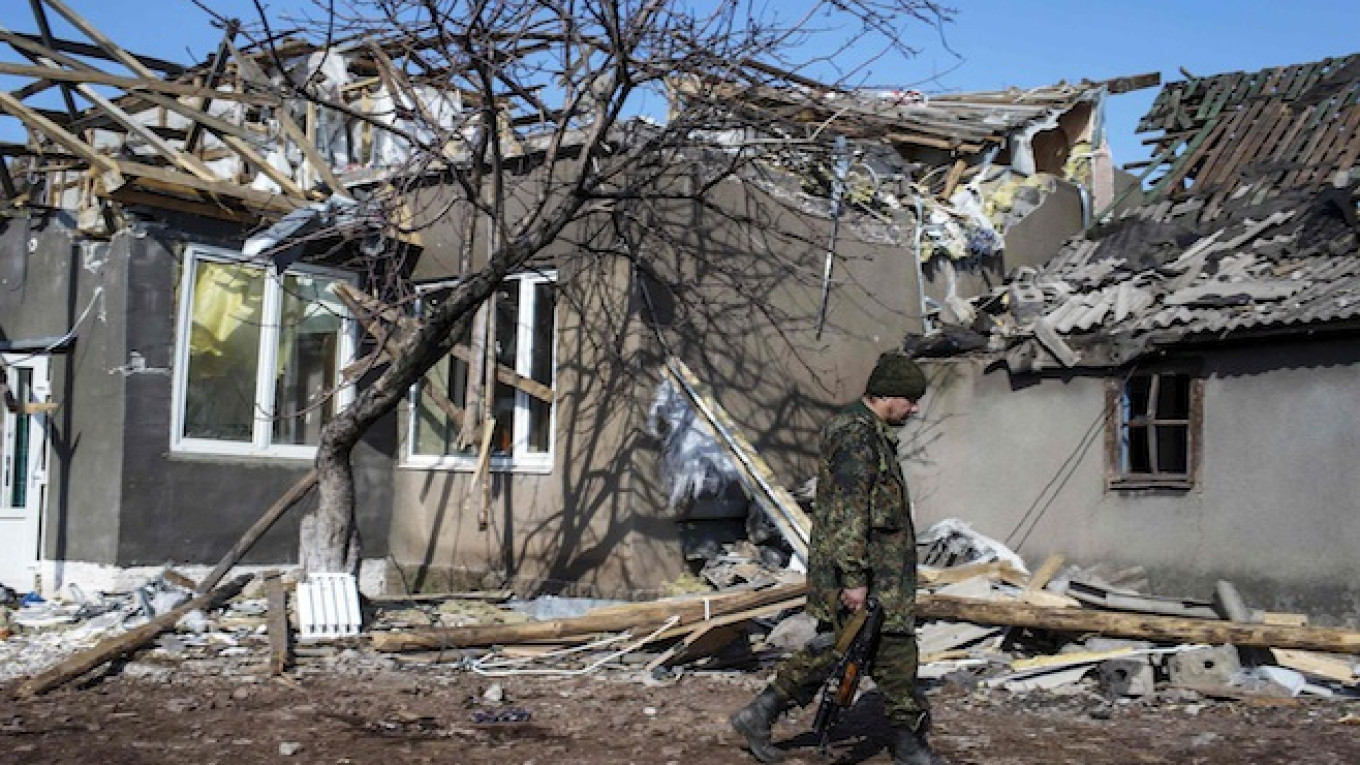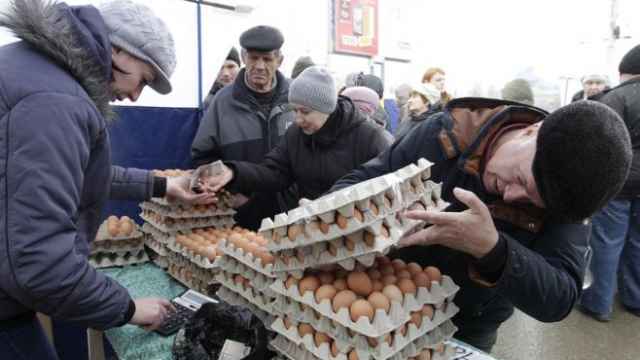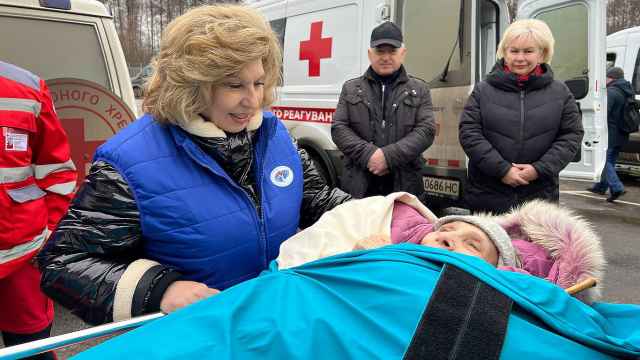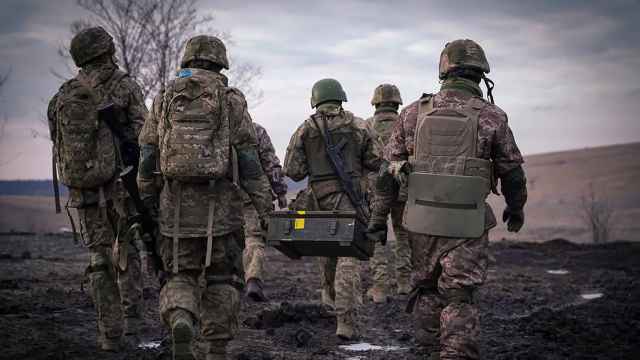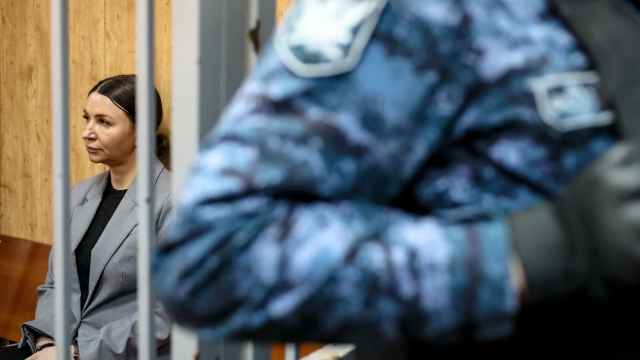WASHINGTON — The United States targeted eight Ukrainian separatists and a Russian bank with sanctions and announced more non-lethal aid for Ukraine on Wednesday after accusing Russian-backed rebels of breaking a European-brokered cease-fire.
Washington is ratcheting up pressure on Moscow a day after it said Russia sent tanks and heavy military equipment into Ukraine in breach of the Minsk accord agreed on Feb. 12.
The sanctioned bank, Moscow-registered Russian National Commercial Bank (RNCB), last year became the first Russian bank to open its doors in Crimea after the region's annexation. Russia's Interfax news agency, which treats Crimea as part of Russia, ranked it as Russia's 142nd largest by assets last year.
Russia's biggest lender, state-owned Sberbank, gave RNCB its former network on the Black Sea peninsula after the annexation. The bank was sanctioned by the European Union last year.
RNCB said the sanctions "do not pose a threat to its current activities" and "at present, RNCB has no assets in the United States."
The aid to Ukraine includes about 200 unarmed Humvees and 30 with armor, said a U.S. defense official, speaking on condition of anonymity. It also includes an undetermined number of unarmed Raven reconnaissance drones, the official said.
In addition to that equipment, which could begin to be delivered within weeks, the White House announced $75 million more in assistance that includes radios, unmanned aerial vehicles, counter-mortar radars, night vision devices, first aid kits, ambulances and other medical supplies.
Among the more prominent separatists blacklisted by Washington on Wednesday was Roman Lyagin, who chairs an election commission in rebel territory. The U.S. Treasury accused him of preventing voting in Ukraine's May presidential election.
Lyagin said he was not a fighter and was playing a peaceful role in separatist activities.
"It's the opposite. I do my best to stop the bloodshed," he said, speaking from the separatist-held eastern Ukraine city of Donetsk.
Rebel leader Alexander Khodakovsky appeared dismissive of the U.S. sanctions slapped against him on Wednesday. He said he had no bank accounts, was already sanctioned by the European Union and had nowhere to go beyond Russia and rebel-held areas.
"Why should I be worried?" he asked.
Khodakovsky, a defector from the Ukrainian state security service who is now Secretary of the Security Council of the so-called government of the Donetsk People's Republic, was placed on the European Union's sanctions list in July.
"Now with the Americans I have the full set," he said.
A U.S. senior administration official said the $75 million in aid was "part of our ongoing efforts to bolster Ukraine's defense and internal security operations and resist further aggression."
The announcement follows accusations by Ukraine and Western governments that Russia continues to send troops and weapons to support separatists in eastern Ukraine despite the Minsk cease-fire deal, a charge the Kremlin has denied.
"If Russia continues to support destabilizing activity in Ukraine and violate the Minsk agreements and implementation plan, the already substantial costs it faces will continue to rise," Adam Szubin, the U.S. Treasury Department's acting undersecretary for terrorism and financial intelligence, said in a statement announcing the sanctions.
A Message from The Moscow Times:
Dear readers,
We are facing unprecedented challenges. Russia's Prosecutor General's Office has designated The Moscow Times as an "undesirable" organization, criminalizing our work and putting our staff at risk of prosecution. This follows our earlier unjust labeling as a "foreign agent."
These actions are direct attempts to silence independent journalism in Russia. The authorities claim our work "discredits the decisions of the Russian leadership." We see things differently: we strive to provide accurate, unbiased reporting on Russia.
We, the journalists of The Moscow Times, refuse to be silenced. But to continue our work, we need your help.
Your support, no matter how small, makes a world of difference. If you can, please support us monthly starting from just $2. It's quick to set up, and every contribution makes a significant impact.
By supporting The Moscow Times, you're defending open, independent journalism in the face of repression. Thank you for standing with us.
Remind me later.


